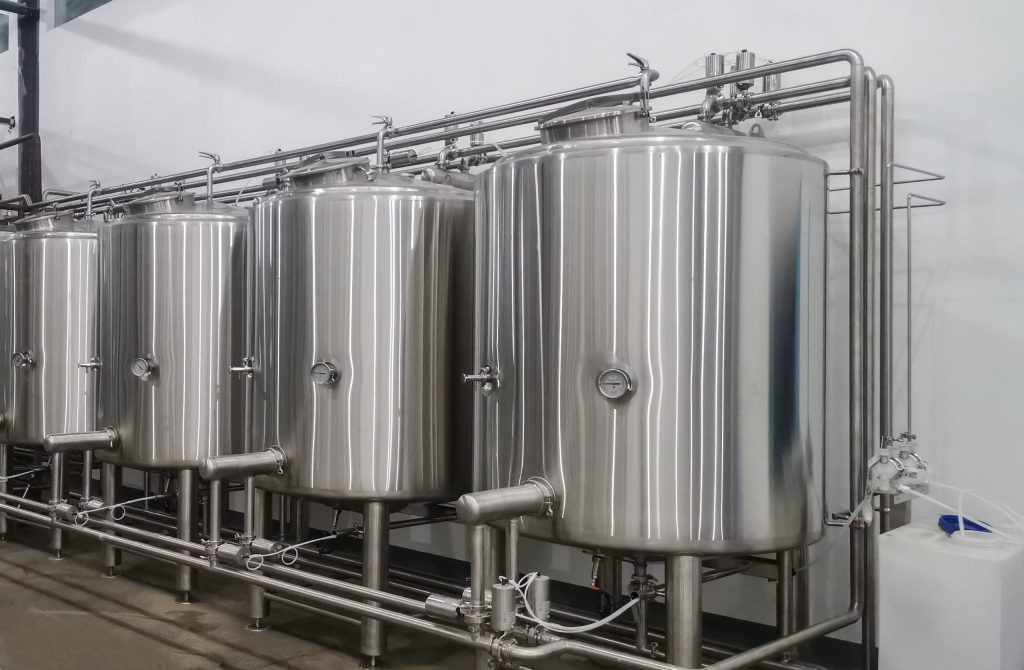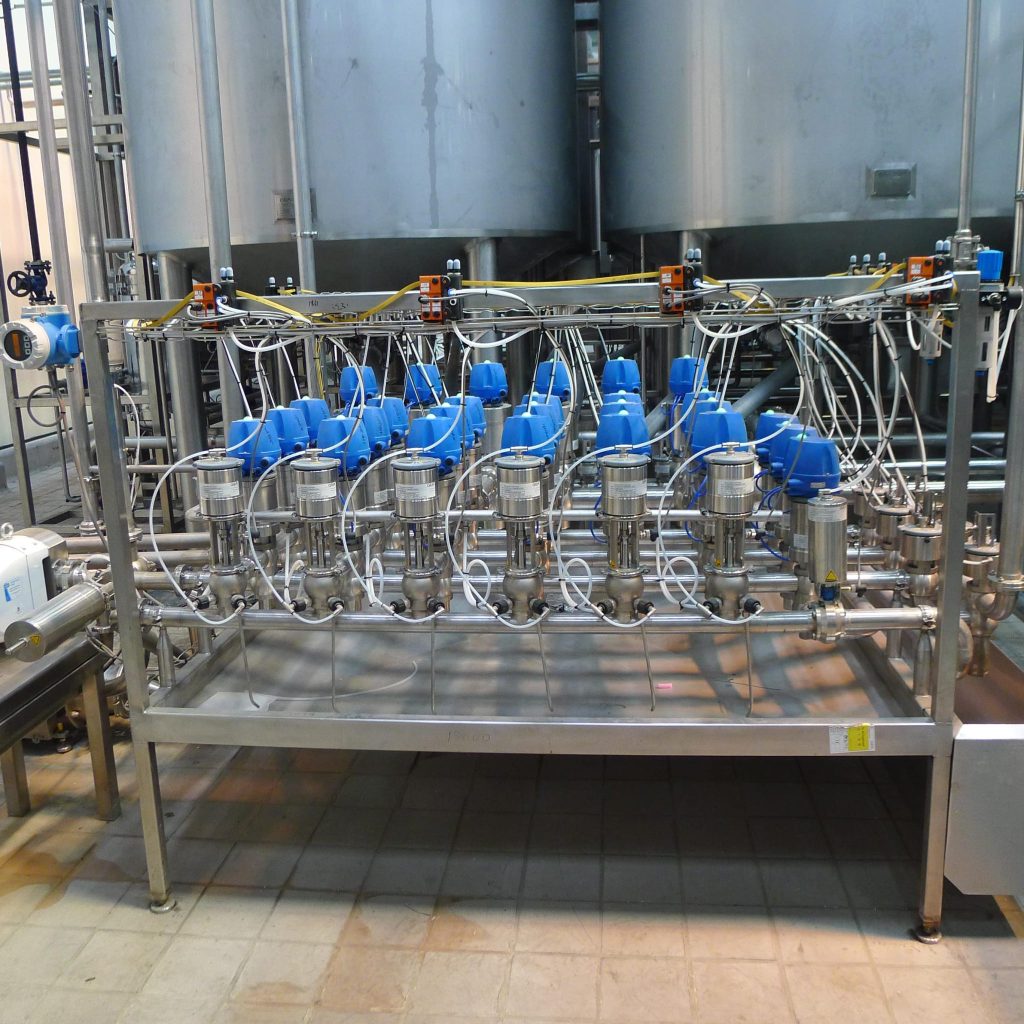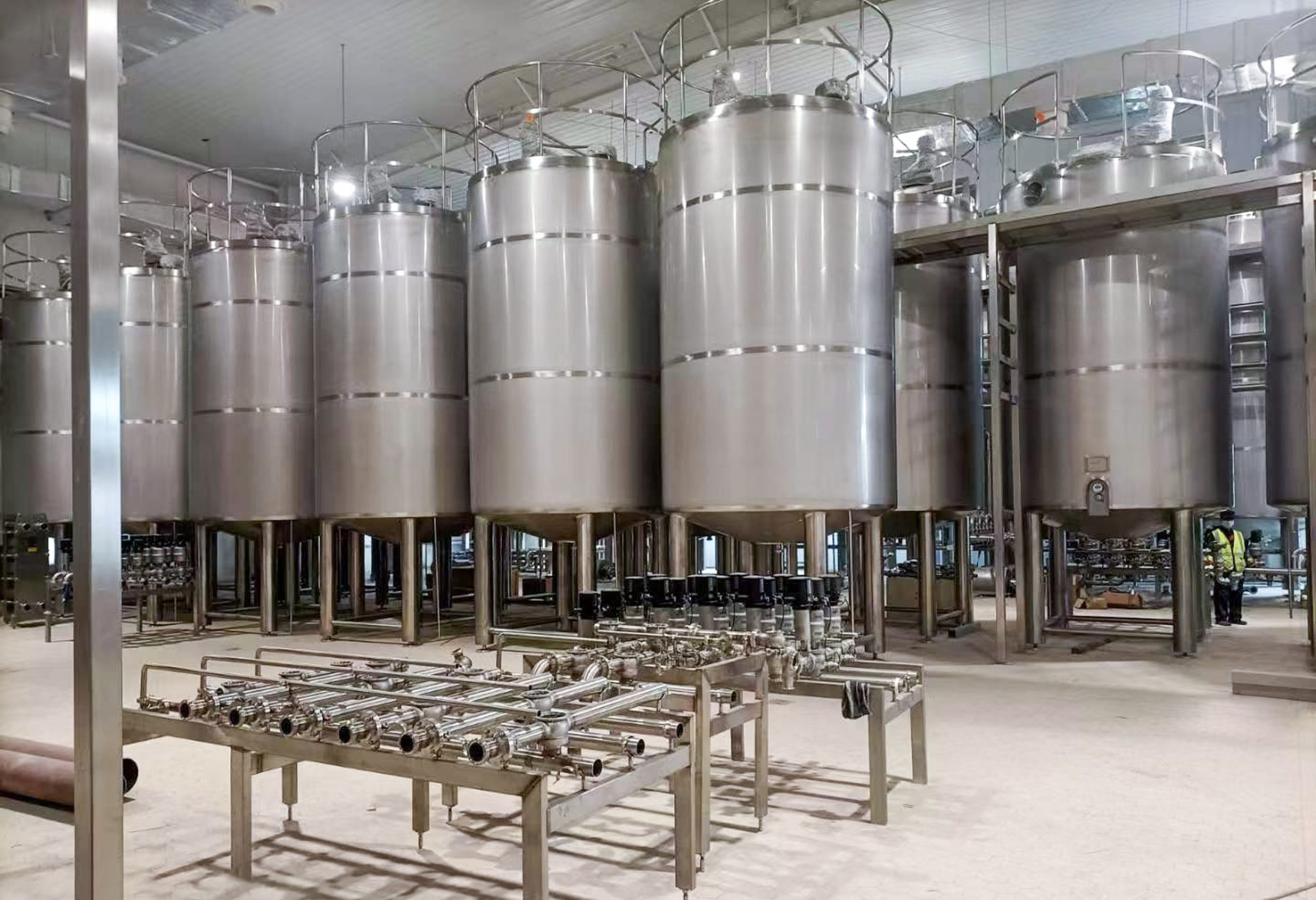Einführung

In der komplexen Welt der Brauereiabläufe ist die Aufrechterhaltung der Sauberkeit von größter Bedeutung, um qualitativ hochwertiges Bier herzustellen. Ein CIP-System (Clean-in-Place) für Brauereien spielt eine entscheidende Rolle, um dieses Ziel effizient und effektiv zu erreichen. In diesem Blog werden die Bedeutung eines CIP-Systems für Brauereien, seine Komponenten, Funktionsweise, Vorteile und häufig gestellte Fragen ausführlich untersucht.
Was ist ein Brewery CIP System?
A Brewery CIP system is a specialized cleaning system designed to clean and sanitize brewing equipment without requiring disassembly. This is essential because disassembling brewing equipment can be time-consuming and increase the risk of contamination. By using a CIP system, breweries can thoroughly clean tanks, fermenters, pipelines, and other equipment in place, ensuring that all surfaces come into contact with cleaning solutions.
Komponenten eines Brewery CIP System
The main components of a Brewery CIP system are carefully selected to ensure thorough cleaning and sanitization:
- Cleaning Chemicals: Alkaline cleaners are typically used to remove organic residues such as proteins and sugars. Acidic cleaners are used to remove mineral deposits and beer stone. Sanitizers, such as chlorine dioxide or peracetic acid, are used to kill bacteria and yeast.
- Pumps and Valves: These are used to circulate cleaning solutions through the brewery equipment. Pumps must be capable of handling various chemicals and pressures to ensure thorough cleaning.
- Kontrollsystem: An automated control system allows breweries to program and monitor the cleaning process. This ensures consistency and reliability in cleaning procedures.
- Wärmetauscher: Some CIP systems include heat exchangers to heat cleaning solutions, which can enhance the effectiveness of cleaning.
- Monitoring Tools: Instruments such as pH meters, conductivity meters, and temperature sensors are used to monitor the cleaning process and ensure that cleaning solutions are at the correct concentration and temperature.
Operation of a Brewery CIP System
A typical Brewery CIP process involves several sequential steps to ensure thorough cleaning and sanitization:
- Vorspülen: The equipment is rinsed with water to remove large debris and residual beer.
- Reinigung: An alkaline cleaning solution is circulated through the equipment to dissolve organic residues. This step is crucial for removing proteins, sugars, and other organic materials that can harbor bacteria and affect beer quality.
- Spülen: The equipment is rinsed again with water to remove the cleaning solution and any loosened residues.
- Desinfektion: A sanitizer solution is circulated through the equipment to kill bacteria, wild yeast, and other microorganisms. This step is critical to prevent contamination of subsequent batches of beer.
- Final Rinse: The equipment is given a final rinse with clean water to remove any remaining sanitizer residues and ensure that no chemical flavors or residues remain in the equipment.
Benefits of Implementing a Brewery CIP System
Implementing a Brewery CIP system offers several key benefits that contribute to the overall quality and efficiency of brewery operations:
- Konsistenz: CIP systems ensure consistent cleaning and sanitization procedures, reducing the risk of contamination and ensuring that each batch of beer meets quality standards.
- Effizienz: CIP systems automate the cleaning process, reducing the need for manual labor and allowing brewery staff to focus on other critical tasks.
- Sicherheit: By automating the handling of cleaning chemicals, CIP systems reduce the risk of chemical exposure and ensure that cleaning procedures are performed safely and effectively.
- Langlebigkeit: Proper cleaning and maintenance with a CIP system can extend the lifespan of brewery equipment, reducing maintenance costs and downtime.
- Einhaltung gesetzlicher Vorschriften: CIP systems help breweries comply with food safety regulations and industry standards by ensuring thorough cleaning and sanitization of equipment.
Fallstudien und Beispiele

To illustrate the effectiveness of Brewery CIP systems, let’s consider a few case studies from different-sized breweries and their experiences with implementing CIP systems.
| Brauereigröße | Implementation Details | Results Achieved |
|---|---|---|
| Small Brewery | A small craft brewery installed a semi-automated CIP system to clean fermenters and kegs. | Reduced cleaning time by 30%, improved beer consistency and quality. |
| Medium Brewery | A medium-sized brewery upgraded to a fully automated CIP system with integrated chemical monitoring. | Decreased water and chemical usage by 20%, achieved consistent sanitation levels. |
| Large Brewery | A large brewery implemented a customized CIP system across multiple production lines, including canning and bottling lines. | Enhanced production efficiency by 25%, minimized downtime due to cleaning. |
Abschluss
A Brewery CIP system is indispensable for modern breweries aiming to uphold hygiene standards, improve operational efficiency, and ensure the quality and safety of their products. By integrating a well-designed CIP system, breweries can enhance their cleaning processes, reduce manual labor, and maintain consistent product quality, ultimately benefiting both their reputation and bottom line.
Häufig gestellte Fragen
F: Wie oft sollte ein Brewery CIP system be used?
A: It depends on the brewery’s production schedule and the type of beer being brewed. Typically, it’s recommended after each batch or at regular intervals.
Q: What chemicals are used in a Brewery CIP system?
A: Commonly used chemicals include alkaline cleaners (for organic residues) and sanitizers (to kill microbes).
F: Kann ein Brewery CIP system clean all types of brewing equipment?
A: Yes, a properly designed CIP system can clean tanks, pipes, kegs, and other brewing equipment effectively.

